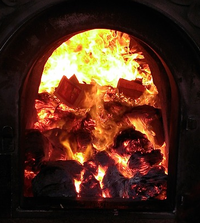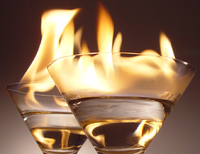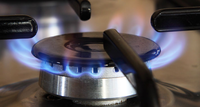Difference between revisions of "Combustion"
| Line 23: | Line 23: | ||
===Note to Teachers=== | ===Note to Teachers=== | ||
Students often don't recognise the difference between heating and burning. When asked what happens to a substance when it is heated they will say 'burn' when melting would be a more appropriate response. Students also do not always recognise the necessity of oxygen (or at least air) when things burn. | Students often don't recognise the difference between heating and burning. When asked what happens to a substance when it is heated they will say 'burn' when melting would be a more appropriate response. Students also do not always recognise the necessity of oxygen (or at least air) when things burn. | ||
| + | |||
==Key Stage 3== | ==Key Stage 3== | ||
===Meaning=== | ===Meaning=== | ||
| Line 39: | Line 40: | ||
'''Metal + Oxygen → Metal Oxide''' | '''Metal + Oxygen → Metal Oxide''' | ||
| − | Magnesium + Oxygen → Magnesium Oxide | + | : Magnesium + Oxygen → Magnesium Oxide |
| − | Aluminium + Oxygen → Aluminium Oxide | + | : Aluminium + Oxygen → Aluminium Oxide |
| − | Iron + Oxygen → Iron Oxide | + | : Iron + Oxygen → Iron Oxide |
Revision as of 13:11, 29 September 2018
Contents
Key Stage 2
Meaning
Burning is a chemical reaction that happens when something catches fire.
About Burning
- Materials can only burn if there is enough air.
- Substances cannot burn underwater or in empty space.
- Anything that burns is called a fuel.
Examples
| A solid fuel burning. | A liquid fuel burning. | A gas fuel burning. |
Note to Teachers
Students often don't recognise the difference between heating and burning. When asked what happens to a substance when it is heated they will say 'burn' when melting would be a more appropriate response. Students also do not always recognise the necessity of oxygen (or at least air) when things burn.
Key Stage 3
Meaning
Combustion is an exothermic reaction that happens when a fuel burns in the presence of oxygen releasing thermal energy and light.
About Combustion
- Combustion always happens at high temperatures and gives off light.
- Combustion may involve Hydrocarbons. This has the general equation: Fuel + Oxygen → Carbon Dioxide + Water
- Combustion may involve Metals. This has the general equation: Metal + Oxygen → Metal Oxide
Examples
Fuel + Oxygen → Carbon Dioxide + Water
- Methane + Oxygen → Carbon Dioxide + Water
- Ethane + Oxygen → Carbon Dioxide + Water
- Propane + Oxygen → Carbon Dioxide + Water
Metal + Oxygen → Metal Oxide
- Magnesium + Oxygen → Magnesium Oxide
- Aluminium + Oxygen → Aluminium Oxide
- Iron + Oxygen → Iron Oxide


